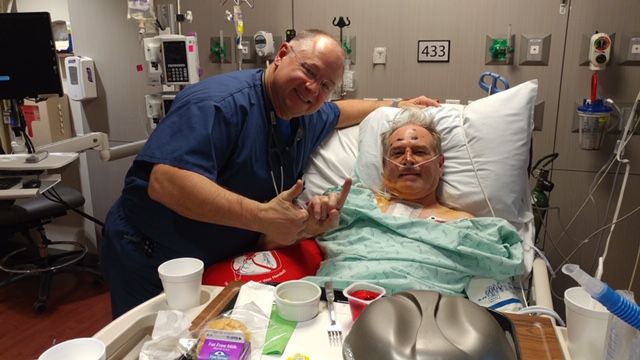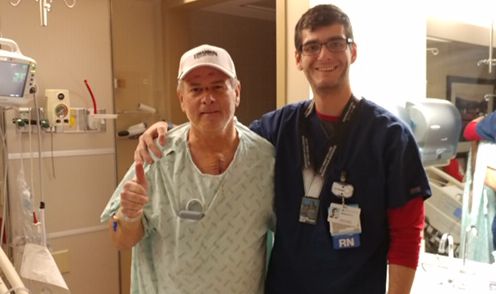News trend
Dallas Marathon Heart Attack Survivor to Run This Year’s Race With Surgeon Who Saved Him
Dallas Marathon Heart Attack Survivor to Run This Year’s Race With Surgeon Who Saved Him
During last year’s Dallas Marathon relay, Dwayne Pickens had only 5.2 miles for his segment, and he was confident that he’d breeze through it, considering he’d run eight miles the weekend before.
About two miles in, the breathing issues started. He told Runner’s World that it was a cold morning, so he thought the cool air was affecting his lungs and making it more challenging to breathe.

The next thing he remembers is waking up in the emergency room, where he found out that, technically, he’d been dead on the course for about two minutes.
Although he’d never had any indication of heart issues, the 64-year-old had suffered a heart attack, but he got incredibly lucky—running just behind him was a lieutenant with Dallas Fire Rescue, and a registered nurse with Baylor University Medical Center at Dallas. They both stopped to help and started CPR, then used an automated external defibrillator from a nearby first responder vehicle.
They got Pickens’s heart started again. Two days later, he had quadruple bypass surgery.
“It just makes me feel grateful, to have this happen when help was right there, as opposed to having a heart attack during one of the many times I ran alone,” said Pickens. “Now, I want to be a lesson for others, that they should get their health checked even if they think there’s nothing wrong. Even if just one person makes an appointment for a physical because of my story, I’ll be happy.”
Pickens has already changed the health of at least one person: his cardiac surgeon, Baron Hamman, M.D.
Although Hamman’s wife is a running coach, and he’s exceedingly familiar with the benefits of cardio exercise on the heart, he admits that before Pickens’s surgery, he was “that cardiac surgeon who gets winded running up the stairs.”
But something about the dramatic events of Pickens’s experience flipped a switch for him, he told Runner’s World.
“I knew I needed to change, so I made a Faustian deal,” he joked. That involved offering to run part of the relay with Pickens for the 2018 Dallas Marathon.

Both patient and doctor benefitted from that fresh goal. For Pickens, it offered a ray of hope that he could get back to where he was before the heart attack—and the support he needed to start progressing.
“By the third day after my surgery, I did 22 laps around the nursing station, and they decided it was time for me to go home,” he said. “By April, I was running quite a bit and playing golf again. It was work to get back, but with the assurance that I could do it, I pushed myself.”
For Hamman, the upcoming relay was just what he needed to motivate him to finally start working out. It’s been helpful having a live-in running coach—his wife—who’s done four marathons, he said, and now they go to the gym together.
“I insisted on the shortest segment, and I’m surprised at how fast the time has gone between making that promise and having the run be coming up,” he said. “But I’m ready.”
Also on Pickens’s relay team will be three out of four of his sons, with Pickens running the final segment to cross the finish line. He plans on wearing a shirt labeled with the names of the first responders who saved his life last year, and the two doctors who worked on him at the hospital.
“If they hadn’t been there, I wouldn’t have made it,” he said. “It just feels right that we’ll all kind of cross that finish line together.”
